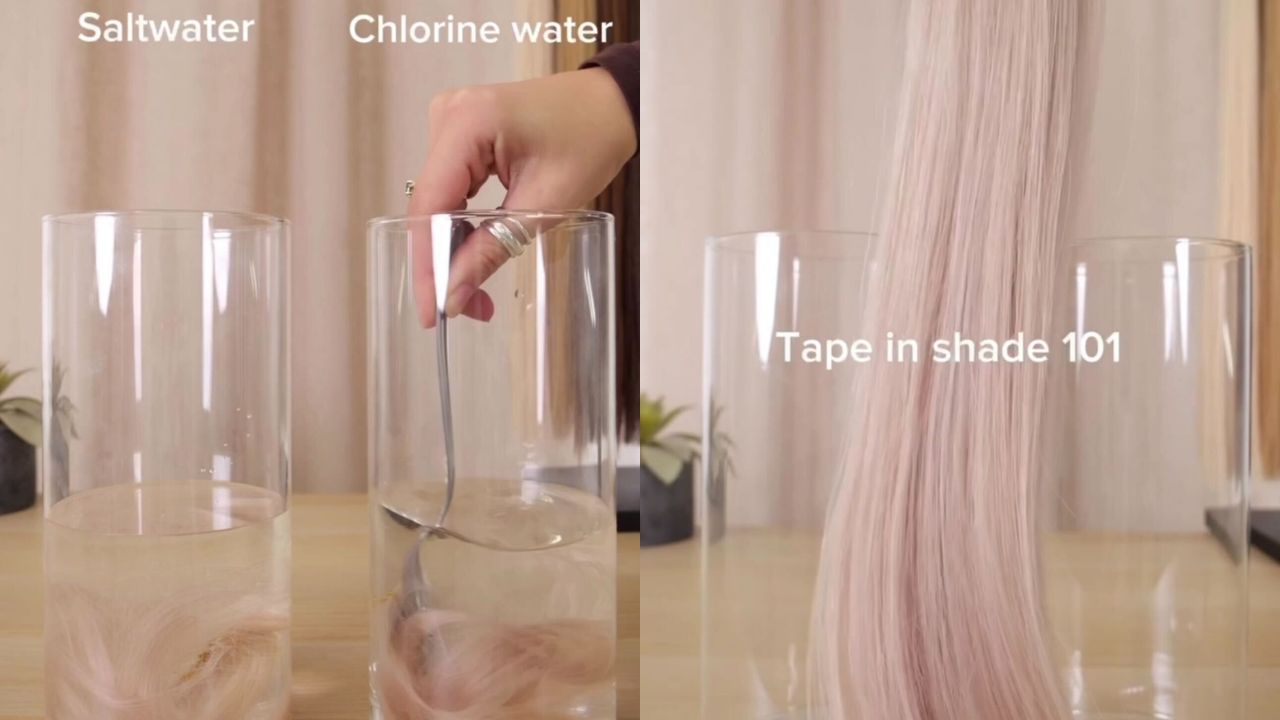
Chlorine and Saltwater: How to Care for Tape Hair Extensions in Pool and Beach Environments
Tape-in hair extensions are a popular choice for adding length and thickness to natural hair. However, if you enjoy spending time in pool or beach environments, it's important to take extra precautions to care for your tape-in extensions. Chlorine and salt water can be harsh on hair extensions, causing them to become dry, tangled, and damaged, and even change colour. The best way to avoid ruining your hair extensions on holiday is to prevent them from getting wet while entering the sea or pool. However, if this is not possible, follow our advice below for protection that will minimize damage.
Please take note of the following information:
Chlorine has the potential to damage tape hair extensions by stripping away their natural oils, which can result in dryness and brittleness. It can also lead to discolouration and breakage. Additionally, chlorine can weaken the adhesive on the tape tabs, potentially causing the extensions to slip or fall out. One of the most noticeable effects of chlorine on hair and tape hair extensions is a colour change, which can manifest as green, yellow, or peachy tones on the extensions or naturally lighter hair.
Before swimming in the pool, it is advisable to apply a hair mask and braid your hair. This will create a protective barrier against salts, chlorine, and minerals. Keeping your hair in braids will prevent matting and tangling. After swimming, make sure to rinse your hair immediately and wash and treat it with the necessary products to avoid any chemical or mineral reactions that could lead to colour fade.
Saltwater can cause significant damage to tape hair extensions. It can lead to dryness, tangling, and the stripping of natural oils, making the extensions brittle and more prone to breakage. Additionally, saltwater can cause discolouration and alter the texture of the hair, leaving it feeling thinner, matted, and brittle.
Before going for a swim in the sea, it's important to take steps to protect your tape hair extensions from saltwater damage. It's best to apply a leave-in hair mask and braid your hair before getting into the water. This will create a protective barrier against salts and minerals. Keeping your hair in braids will help prevent matting and tangling. Once you're back at your hotel, rinse your hair immediately and wash and treat it with the necessary products to avoid any chemical or mineral reactions that could lead to dry, damaged, and brittle hair.
Top Tip: After exposing your hair extensions to the pool or seawater, rinse your hair with a large bottle of water to prevent the chlorine or sea water from drying into your hair extensions and take a sachet of Malibu crystal gel on holiday with you to rectify any chemical reactions/discolourations immediately.
Check out our latest educational experiment video to see the effects of chlorine and seawater on tape hair extensions. This will help you understand the importance of avoiding swimming while wearing tape-in hair extensions. Watch our experiment video here.



